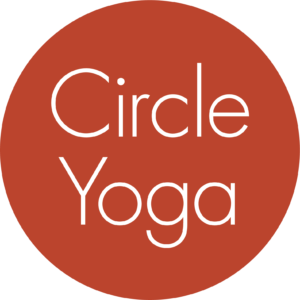June 2016
While Annie is away on retreat this month, we are sharing an excerpt from her book, Things I Did When I Was Hangry: Navigating a Peaceful Relationship with Food.
Ten Thousand Hours of Pancakes

So most weekend mornings, I faced a crowd of hungry soccer players or sleepy teenagers. I found that pretty much everyone liked pancakes, so that became my go-to breakfast food on Saturday, Sunday, and summertime mornings. They were always a hit and very easy to make from scratch.
During the busiest years, I probably made a thousand pancakes a year. The most popular with the young kids, and even some adults, were the chocolate chip pancakes. Blueberry is now my son’s favorite, though my husband only eats plain. (My son has even taught his French girlfriend—whom he met years ago at Plum Village—how to make them.) I can now mindfully whip up a batch of pancakes from scratch—dairy- and egg-free, gluten-free, or classic—in about a minute! It takes some time for the griddle to heat up, which is good because it gives me time to practice mindful breathing, get out the maple syrup, and set the table.
Mindfulness, like most disciplines and rituals, benefits from repetition. In his book Outliers: The Story of Success, author Malcolm Gladwell suggests that it takes ten thousand hours of practice to master any activity. I’m not sure I’ve reached ten thousand hours of pancake-making, but I’m getting close.
After practicing mindfulness for a few years, both on the cushion and at the griddle, it got easier to stay present. I started noticing how much more I was able to truly hear my children, even when they were angry at me. And, sure, I felt terrible about being told the truth—that I was ignoring them in favor of my computer or that I grilled their friends with too many questions. But I also felt something else: an authentic connection to people I loved.
Only when we are present can we experience the moment as it is. Learning how to train our attention isn’t all that difficult, but it starts with noticing any time we aren’t present. Once we notice we aren’t present, then we can choose to bring our attention back again and again to whatever is happening, whether it’s making a pancake, recovering from a grievance, or experiencing a hug.
In Charles Duhigg’s book, The Power of Habit, he explains that it only takes doing something differently one time to change our conditioning. He quotes the famous behavioral psychologist and habit-reversal expert Nathan Azrin as saying, “It seems ridiculously simple, but once you’re aware of how your habit works, once you recognize the cues and rewards, you’re halfway to changing it. It seems like it should be more complex. The truth is, the brain can be reprogrammed. You just have to be deliberate about it.” Mindfulness is the ability to become aware of and be deliberate about your habits.
Every time you do something differently you are literally changing your brain. In Buddha’s Brain, Rick Hanson describes how mindfulness does this. “Mindfulness leads to new learning—since attention shapes neural circuits—and draws upon past learning to develop a steadier and more concentrated awareness. Wisdom is a matter of making choices, such as letting go of lesser pleasures for the sake of greater ones.” Every time we put the frog back on the plate, we have a moment of wisdom in which we can make a new choice and strengthen the habit of making healthier and happier choices.

HI Annie
I miss getting to see you like I did when I lived closer – and I miss “be-ing” at the CY studio – but I am delighted as always to stay connected through reading your words and sharing in your stories. Sending summer wishes – Sandy
Thanks, Sandy. We miss you too. Hope all is well. Xo
Thank you Annie, As always, inspiring and helpful!
Thanks, Claudia. So glad it spoke to you. Xo